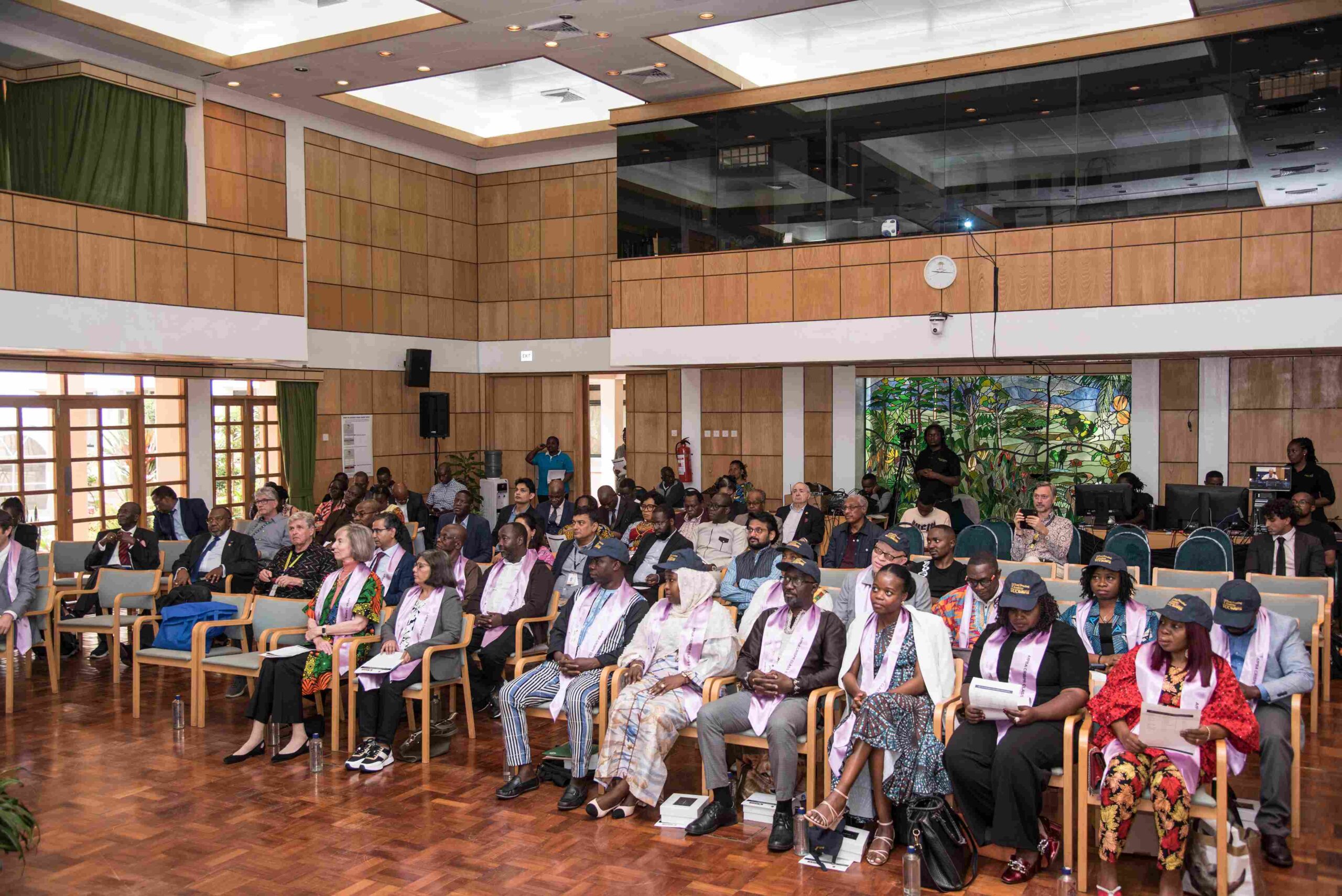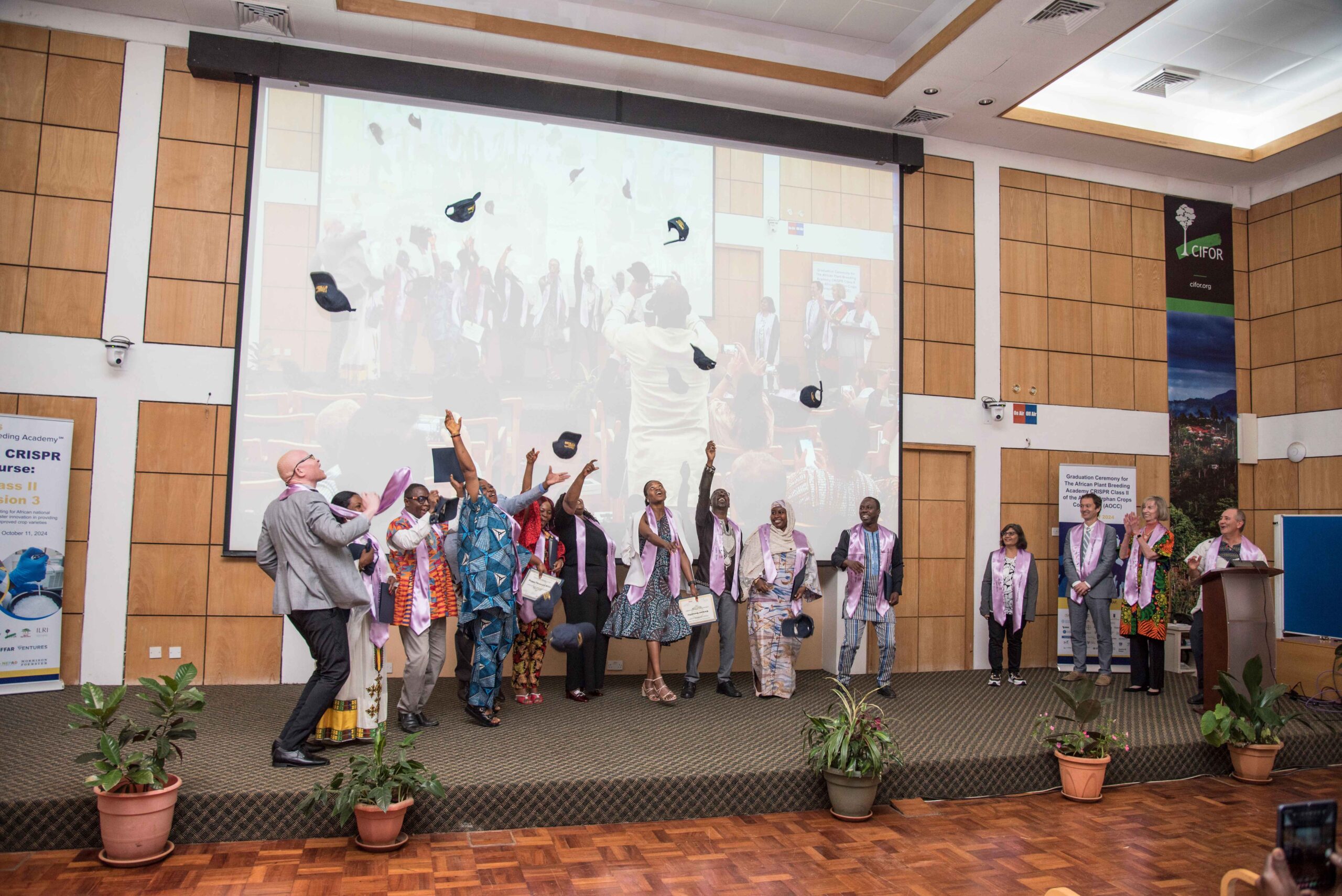On October 11, 2024, we celebrated a dynamic group of African pioneers, African scientists, the first 21 of the future 100 African Scientists to be trained on the Genome Editing CRISPR Course, which is being adopted as part of the toolkit for plant breeders to improve yields and resilience of indigenous crops across the continent.
These scientists are based at national agricultural research centers, with the mandate to find solutions and innovations to meet national targets on food security, amid climate change, pests, soil erosion, and a myriad of others which make the zero-hunger goal of the African Union’s Agenda 2063 seem like a pipe dream.
Genome editing (also called gene editing) is a group of technologies that allow scientists to change an organism’s DNA. These technologies allow genetic material to be added, removed, or altered at specific locations in the genome. Several approaches to genome editing have been developed. A well-known one is called CRISPR-Cas9, which is short for clustered regularly interspaced short palindromic repeats and CRISPR-associated Protein 9.
The CRISPR-Cas9 system has generated a lot of excitement in the scientific community because it is faster, cheaper, more accurate, and more efficient than other genome editing methods. It’s been a decade in the making preparation and follows on the heels of the highly successful African Orphan Crops Consortium (AOCC) which has trained over 172 plant breeders and genetic engineers from 28 African countries, through the African Plant Breeders Academy (AfPBA).
Nearly half of the scientists are women, and all the plant breeders are now actively applying the essential tools they must enhance the yields, resilience, and nutritional value of indigenous African crops.

The Alliance for Science has been privileged to become the newest member of the AOCC and it has been our inspiring to contribute to the training program of the first two cohorts of the CRISPR course in 2023 and 2024, through the Science Communication short course, using our highly regarded Values Based Messaging Toolkit on Gene Editing.
Science Communication is the invisible catalyst that activates learning and connects it to communities to achieve their aspirations. It is at the frontiers of the generational challenges of misinformation, distrust in science and experts, and the breakdown of trust between the public and government institutions.
The Alliance for Science welcomes this first group of graduates and remains committed to supporting them to tell their stories and reach their goals.
 ___________________________________________________________________________________________
___________________________________________________________________________________________
Dr Sheila Ochugboju is the Executive Director of the Alliance for Science.
